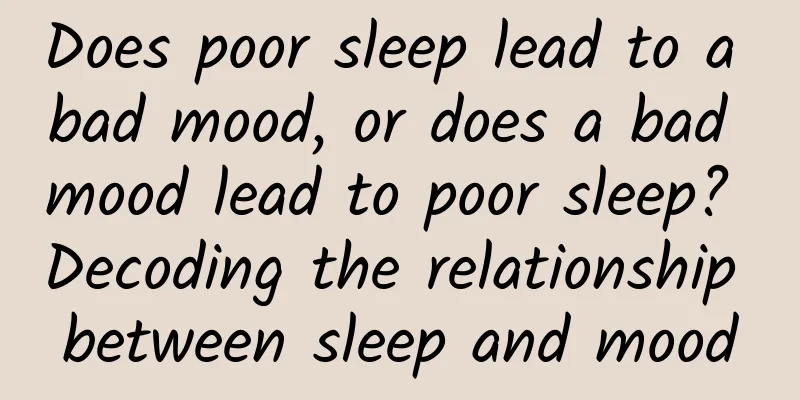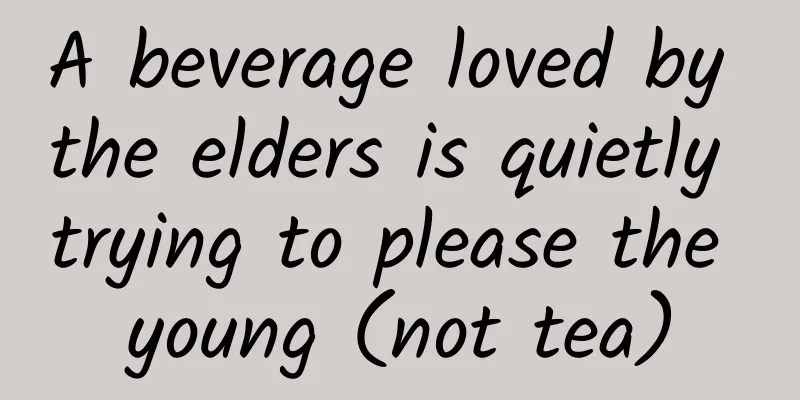Does poor sleep lead to a bad mood, or does a bad mood lead to poor sleep? Decoding the relationship between sleep and mood

|
Leviathan Press: There is a classic scene in the movie "The Lives of Others" (Das Leben der Anderen, 2006): When the East German Stasi interrogated the suspect, they did not use any torture, but simply rotated the police to interrogate him 24 hours a day. Soon, the suspect suffered a complete mental breakdown due to extreme lack of sleep. It is estimated that many people have experienced staying up late, lack of sleep and persistent insomnia. What is the connection between sleep and mood? When I was a graduate student, my colleagues and I studied how staying up all night affected a person's ability to regulate their emotions. Once a week, usually on Friday night, I would stay up all night to monitor the participants and make sure they followed the protocol. Around noon the next day, we would all stagger out of the lab, exhausted and wanting nothing more than to go home and rest. Two months into the experiment, I was in my car, waiting at a traffic light, when a silly love song came on the radio. Suddenly, I burst into tears uncontrollably. I remember being surprised at my own reaction. Then it dawned on me that I wasn’t just studying sleep deprivation—I had become part of the study. Weeks of sleep deprivation took their toll and I could no longer control my emotions. That research project, and many studies since, have shown a strong link between good sleep and emotional health. In healthy people, good sleep is associated with more positive emotions, while just one night of sleep deprivation is enough to trigger strong feelings of anxiety and depression the next morning.[1] In addition, those with chronic sleep disorders tend to feel more negative about daily events, making it more difficult to shake off a depressed and pessimistic mindset.[2] In fact, in a national sleep survey, 85% of Americans reported that their mood is disrupted when they don’t get enough sleep.[3] Research from our lab and elsewhere is now beginning to reveal how sleep deprivation disrupts the mood-regulating circuits within our brains. © The New Yorker For decades, researchers and medical professionals have believed that insomnia was a byproduct of other, more "primary" conditions or conditions, such as depression or anxiety. In other words, first came the anxiety, then the insomnia. Today, we know that this order can be reversed. In fact, insomnia and anxiety, depression, or other mental health conditions can feed off each other, creating a vicious cycle that can be extremely difficult to break. Much of the evidence for this comes from chronic insomnia. Compared with people who sleep well, people with insomnia are twice as likely to develop depression or anxiety later in life. For example, one follow-up study of 1,500 people found[4] that chronic insomnia was associated with a threefold increase in the incidence of depression and a twofold increase in the incidence of anxiety disorders one year later. Insomnia symptoms also increase the risk of post-traumatic stress disorder[5], are strongly associated with suicidal behavior in high-risk populations, and often precede mood episodes in people with bipolar disorder. Furthermore, even after adequate treatment for depression or anxiety, people who continue to have sleep disturbances are at greater risk of relapse relative to those whose sleep improves.[6] Understanding the role of sleep in this pattern may help reveal new insights to aid in the prevention and treatment of many affective and psychiatric disorders. © Alpha Coders Earlier studies have shown that insomnia can cause serious mental health symptoms in otherwise healthy people.[7] In studies conducted primarily in the 1960s, volunteers who stayed up two nights in a row reported difficulty forming thoughts, finding words, and forming sentences. They experienced hallucinations, such as seeing stationary objects move or feeling someone else’s touch despite being alone. After three days of staying up, some participants developed symptoms of delusions and paranoia. They believed they were secret agents or that aliens were out to get them (if that sounds like a psychotic episode, that’s because it is). After five days, several participants entered a state akin to full-blown clinical psychosis and were unable to fully comprehend their situation. In one study[8], U.S. military volunteers attempted to stay awake for more than four nights. One soldier, described by his friends as quiet and reserved, became extremely aggressive after three consecutive nights without sleep. He started fights and insisted that he was on a secret mission for the president. He was eventually forcibly restrained and expelled from the experiment. Six others exhibited violent behavior and persistent hallucinations. In all of these cases, after a full day of sleep, the soldiers' behavior returned to normal and they had no memory of the previous confusion. Given the damaging effects, studies of long-term sleep deprivation are now considered unethical, but they remain a powerful reminder of how much our minds and mental health depend on sleep. © Quanta Magazine Despite these startling results, scientists have remained skeptical about the consequences of staying up all night, especially given that (luckily) few of us endure such extreme sleep deprivation. That's where the latest research comes in. In recent years, a neuroscientific explanation has emerged that's beginning to shed light on the causes of sleep, or lack thereof, which appears to have a direct link to our moods. Whenever we face a neurological or emotional challenge, a center deep in the brain called the amygdala fires up. The amygdala can trigger a full-blown physical response to prepare us for the challenge or threat we face. This “flight or fight” response speeds up our heart rate and sends stress hormones flooding our bloodstream. Fortunately, there’s a brain region that stands between us and this cascade of overactive responses: the prefrontal cortex, the area just behind the eyebrows. Research shows that activity in this area tends to inhibit, or downregulate, the amygdala, thereby controlling our emotional responses.[9] In studies where my colleagues and I deprived healthy volunteers of one night of sleep, they found that activity in the prefrontal cortex, as measured by functional magnetic resonance imaging (fMRI), dropped dramatically.[10] In addition, neural activity connecting the amygdala to the prefrontal cortex was significantly reduced.[11] In other words, when sleep is disrupted, the regions and circuits that control our emotional responses essentially malfunction. Other studies have found that this type of neurological damage also occurs when people experience a night of sleep deprivation or typically sleep less than six hours a night, or when participants’ sleep is restricted to just four hours a night for five consecutive nights.[12] This impairment can be so severe that it blurs the boundaries of what people think of as emotions. For example, when my colleagues and I showed participants neutral and emotional images (think bland images of commuters on a train versus photos of crying children), fMRIs showed that when people were well-rested, the amygdala responded differently to these images. But after a night of sleep deprivation, a person’s amygdala responded strongly to both types of images.[13] In other words, when the amygdala can't work in tandem with the prefrontal cortex, the brain's threshold for what it considers an emotion is significantly lowered. This impaired emotional control makes us more prone to anxiety and depression, to the point where even silly love songs can trigger tears. © Lumen Learning The effects on the amygdala, prefrontal cortex, and the neural circuits between them could have many other consequences. In January, we published results showing that changes in this brain circuit, as well as other brain regions involved in arousal, are associated with higher blood pressure after a sleepless night. The brain-level mechanisms that my colleagues and I have observed could lead to changes that negatively affect the entire body, increasing the risk of hypertension and cardiovascular disease. Taking a step back, it’s clear that, like our physical health, mental and emotional health relies on a delicate balance. This balance is maintained by the choices we make throughout the day and night. As a result, even one sleepless night can take its toll. We need to be mindful of this reality, both for ourselves and for those around us. Of course, it’s inevitable that we all miss out on sleep from time to time. But we should take a hard look at the social structures that prevent people from getting adequate rest, such as work norms, school culture, and inadequate support for parents or other caregivers. The science of sleep and mental health suggests that not addressing these issues will leave people vulnerable to serious harm. References: [1]pubmed.ncbi.nlm.nih.gov/32299657/ [2]www.scientificamerican.com/article/why-sleep-deprived-people-are-more-selfish-and-lonely/ [3]www.ncbi.nlm.nih.gov/pmc/articles/PMC3836340/ [4]www.sciencedirect.com/science/article/abs/pii/S0022399907004114?via%3Dihub [5]journals.sagepub.com/doi/10.1111/j.1467-8721.2008.00594.x [6]www.tandfonline.com/doi/full/10.31887/DCNS.2008.10.3/dnutt [7]www.frontiersin.org/articles/10.3389/fpsyt.2018.00303/full [8]journals.physiology.org/doi/abs/10.1152/ajplegacy.1947.150.2.253 [9]www.cell.com/current-biology/fulltext/S0960-9822(07)01783-6 [10]www.nature.com/articles/s41562-019-0754-8 [11]pubmed.ncbi.nlm.nih.gov/32299657/ [12]www.ncbi.nlm.nih.gov/pmc/articles/PMC3792375/[13]www.jneurosci.org/content/35/38/13194[14]journals.lww.com/psychosomaticmedicine/Abstract/2023/01000/Sleep_Loss_Influences_the_Interconnected.6.aspx By Eti Ben Simon Translation/Yuba and Thin Bamboo Proofreading/tim Original article/www.scientificamerican.com/article/why-just-one-sleepless-night-makes-people-emotionally-fragile/ This article is based on the Creative Commons License (BY-NC) and is published by Yuzhu and Shouzhu on Leviathan The article only reflects the author's views and does not necessarily represent the position of Leviathan |
<<: It turns out he knows all the shining scientists in "Oppenheimer"!
Recommend
Is the click-through rate of products in Douyin’s live broadcast room low? Share 5 tips!
If a live broadcast is likened to the process of ...
Chinese Valentine's Day is coming, and you have no idea for a marketing plan? Look at this for inspiration!
If you can’t plan a marketing plan to create a hot...
Does Tencent, which is late to the game, still have a chance in OTT?
In July this year, Tencent launched a major inter...
Testing efficiency doubled! The second NCTS China Cloud Testing Summit opened a new paradigm for AI testing
Testing efficiency doubled! The second NCTS China...
Android smartphone outlook for 2017: Full-screen smartphones explode, Huawei and Samsung compete for first place
According to foreign media reports, there are onl...
A must-have for overseas promotion: the latest ranking of global advertising channels!
On September 24, AppsFlyer released the Ninth Adv...
In the cold winter of the Internet, the CTO of Wannianli teaches you the correct way to "survive the winter"
[51CTO.com original article] "Normal staff a...
After the Shanghai Super Factory officially goes into production, Tesla Model Y will also begin to be "made in China"
Recently, Tesla announced that it will hold a cus...
How much bandwidth is needed to rent a server for APP with 1 million users?
In the 5G smart era, I believe that everyone’s sm...
Nanjing Tea Studio is recommended, and friends who have been there are full of praise
Recommendations for places to taste tea in Jiangn...
Essential for overseas promotion: What are the global advertising channels?
AppsFlyer breaks down data by industry verticals ...
Subsidy and payment: How do products make the transition from "subsidy" to "payment"?
We found that many newly launched Internet produc...
How to promote and attract new users during the cold start phase of APP?
As the threshold for APP development is lowered, ...
Detail page copywriting template with conversion rate over 85%!
Copywriting has always been a very popular job : ...
The Android version of WeChat 8.0.1 was updated two weeks later than the iOS version. Is iOS the more reliable one?
I just saw a message on the news app saying that ...









